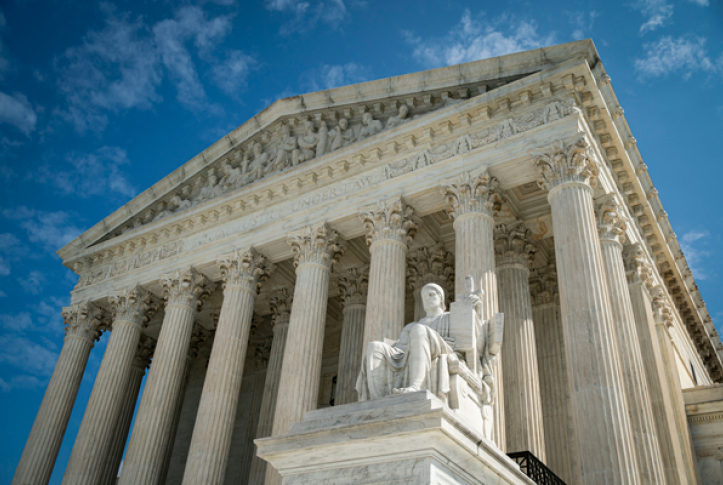In a move that surprised many, the U.S. Supreme Court announced in December that it will hear appeals from the Trump administration in Azar v. Gresham and Azar v. Philbrick. These cases concern the legality of approvals by the U.S. Department of Health and Human Services (HHS) of Section 1115 Medicaid work experiments in Arkansas and New Hampshire. Lower courts have ruled against the administration in both cases.
The Court’s decision to hear Gresham and Philbrick was unexpected since the lower court rulings rested on narrow ground, namely, that the Trump administration had violated the Administrative Procedure Act by failing to consider the central issue of the experiments’ impact on Medicaid coverage. In this sense, the rulings were consistent with the Supreme Court’s recent decision in the Deferred Action for Childhood Arrivals case last year. In that case, which dealt with the Trump administration’s effort to end the program, the Court focused on the failure to follow legal process, not the basic power to end the program.
Although Gresham and Philbrick directly address only the Arkansas and New Hampshire approvals, these states are among many with granted approvals or pending requests for approval. As of December 23, 2020, the Trump administration had approved 12 state work experiments (although four state approvals were set aside by the courts); proposals from seven more were pending.
According to the Court’s schedule, the federal government must file its opening brief by January 19th, meaning the Trump administration will present its position one day before President-elect Joe Biden takes office. Observers expect that the Biden administration will oppose the work experiments and ask the Court to delay the schedule to allow full review of the government’s earlier position. Presumably, the Court will do so; indeed, a change in positions when a new administration takes office is not uncommon.
But what happens next is complicated by two issues. The first is the procedural requirements the Biden administration must follow should it decide, as expected, to rescind the prior administration’s policy and reverse course on the pending and approved demonstrations. The second is the Court’s own interest in the case.
Rescinding Previous Policy and Reversing Pending and Approved Proposals
A new administration cannot simply reverse course; HHS must notify the public that it is rescinding a policy. In the case of work requirements, the policy was formally announced through a letter in 2018 from the Centers for Medicare and Medicaid Services (CMS) to state Medicaid directors. As such, rescission is simpler than if it had been regulatory policy. Indeed, even under HHS’s new “good guidance” regulatory standards, simply ending a policy is a straightforward affair. However, in a major departure from current policy, the Trump administration has suddenly and without prior notice made demonstration terminations more difficult, although the new policy appears to apply only to states already operating under demonstration authority.
Rescission of the 2018 policy will rest on multiple considerations:
- the incoming Biden administration’s view that HHS lacks the legal power to use Section 1115 to tie Medicaid eligibility to work requirements because Congress has consistently rejected legislative efforts to do so
- research showing the adverse impact of Arkansas’s Medicaid work experiment on tens of thousands of eligible or exempt beneficiaries
- a raging pandemic and economic crisis that underscores the need for insurance
- a federal law enacted in March 2020 that bars states that elect to receive enhanced federal Medicaid funding during the COVID-19 pandemic emergency from terminating Medicaid eligibility as long as the public health emergency is in effect. All states have chosen to receive this enhanced funding; currently, work requirements are not being enforced in any state.
The Biden administration also will have to notify states with approved or pending demonstrations that for the reasons stated in its policy rescission, no pending proposals will be approved, and the agency will not move forward with approved demonstrations. The power to terminate 1115 demonstrations is something CMS explicitly reserves the right to do as part of the approval process.
The Court’s Position
In the meantime, the Court may have its own interest — one far broader than the procedural considerations on which the lower court opinions turned. The Court defines the “Question Presented” for the case as follows: “Whether the Secretary may . . . authorize demonstration projects to test requirements that are designed to promote the provision of health care coverage by means of facilitating the transition of Medicaid beneficiaries to commercial coverage and improving their health.” Far from being narrow or procedural, the question appears to focus on whether 1115 gives the HHS Secretary the power to fundamentally transform Medicaid from a public insurance program into one that effectively forces certain beneficiaries to seek workplace benefits instead, even in the face of massive evidence showing the absence of such benefits for low-wage workers. As the Court has framed the matter, it may not matter that the Biden administration chooses not to exercise its power; the Court instead appears interested in the limits of those powers, at least in the context of the Medicaid work experiments that lie at the heart of the question it poses. But by focusing on an issue far broader than the process used to approve the New Hampshire and Arkansas demonstrations, the Court gives Gresham a potentially far broader meaning.
At the same time, it would be very strange if the Court heard a case that involves a vast expansion of HHS powers to conduct experimental Medicaid programs but where the federal government refuses to defend its experiments and no lower court ruled on these grounds. Indeed, the Biden administration would be expected to argue that work experiments that place health and lives at risk — especially during a pandemic — are neither likely to promote Medicaid objectives nor lawful. Assuming the Biden administration will move quickly to rescind the 2018 CMS work experiment announcement, the Court presumably will conclude that this is no longer a suitable case to consider the outer limits of Section 1115. Indeed, by rescinding the policy, the administration will have eliminated the entire basis for the case. This means leaving to another day the ultimate question of the full breadth of 1115 powers to redefine Medicaid’s very purpose and functional design.

